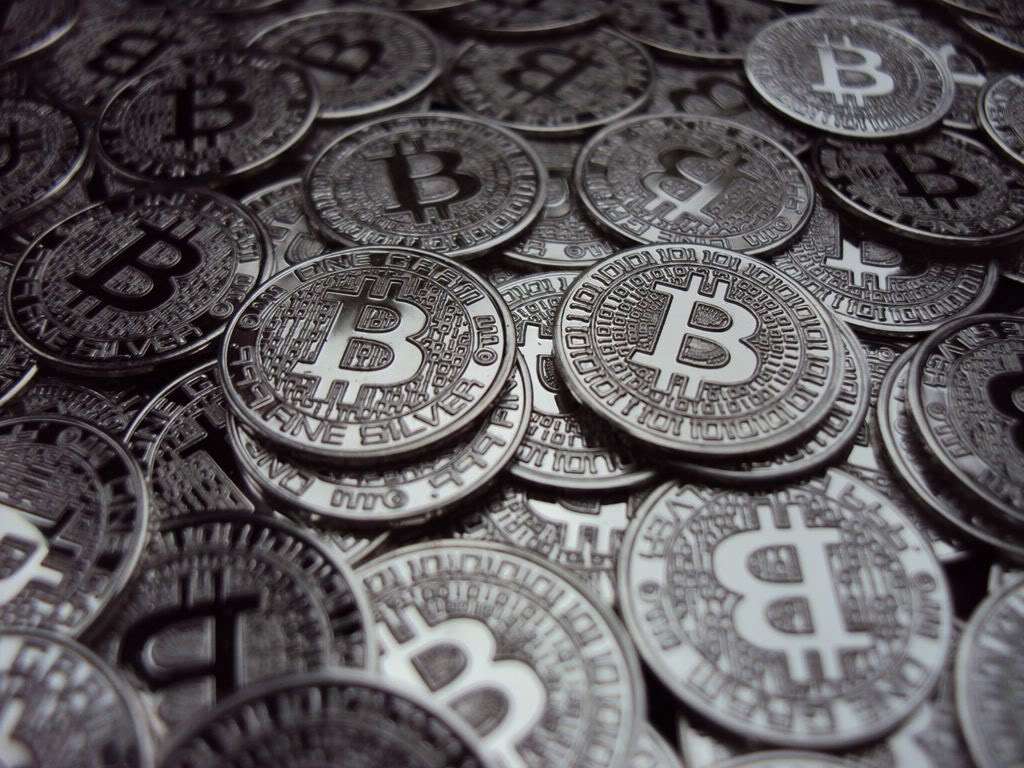

We may earn revenue from the products available on this page and participate in affiliate programs. Learn more ›
A bar called EVR opened up near our office a few months ago–one of the very few New York City establishments that accept payment in Bitcoins, the anonymous, decentralized, open-source currency. So we wondered: Suppose we stopped by EVR for a $15 margarita made with mole bitters, and a plate of blue cheese truffle fries. That drink and snack runs $25, or, at the time of writing, 0.16727979744996774 Bitcoins (BTC). What does the bartender say? “That’ll be zero point one six seven two seven nine seven nine…”?
There are a few threads on the Bitcoin forums already about this problem, which is one faced by any complex system created intentionally all at once, be it a currency or a language. The words we use for smaller units in currency like the dollar evolved over time. The American nickel is called a nickel because it used to be made of nickel. “Dime” is a corruption of an old English word of French origin meaning “tenth.” “Penny,” well, we’re not really sure, but it probably has something to do with the obsolete English version of the word “pawn,” meaning a token. The pound sterling currency, used by the British Isles, is even weirder, with dozens of different names and nicknames for various amounts of money.
The Bitcoin wiki has a few suggestions, culled from the most popular suggestions on the various discussion threads. Suggestions include demiBitcoins and Bitcoinclusters (these are the same, somehow), Bitbats, units named for other prominent Bitcoiners (the “Gavin,” the “Wei,” the “Laszlo”), using scientific notation (like “1E-3BTC for 0.001”), and BTCh (stands for hectobitcoin, but would be pronounced as “bitch”). One person suggested Cubit, like a cubed bit. The immediate, painfully earnest response was: “Spoken it sounds too much like ‘qubit’ which will eventually be confusing once quantum computers are a reality.” The Bitcoiners want to be ready for the future, however unlikely it is that Bitcoins will actually be used in it.
Without physical currency, there’s no real reason to round off your bill to the tenth or hundredth place, and as Bitcoins rise in value (they hit $400 this week for a brief moment, then plummeted), fractional Bitcoins become more and more everyday.
Some forum posts advocate against slangy terms replacing elegant decimal places; there’s a contingency that sees the possible embrace of Bitcoin in its digital fullness as a boon for the number-obsessed, or a tool for educating the philistine public. Said one:
I occasionally use SI [the International System of Units] in regular speech just to be geeky (example, I like to say 5 “kilodollars” instead of 5 “grand”), and people look at me like I’m nuts and often don’t even know what I mean, even though it should be obvious.
For now, the frontrunner suggested denominations of Bitcoin are as follows. You’ve got 1 BTC, or Bitcoin. 1 cBTC, also known as a Bitcent, is a hundredth of that–the penny of the Bitcoin world, though it’s worth a lot more than an American penny. Then there’s 0.001 BTC, abbreviated mBTC, for milliBitcoin, and pronounced “em-bit” or “bit-mill” or “millibit.” Nobody’s really sure of the pronunciation yet. Down from there is the millionth of a BTC, called a μBTC and pronounced “microbit” or “you-bit.”
The only sub-unit of Bitcoin that’s agreed upon is the satoshi, named for the mysterious founder (or founders) of Bitcoin. The satoshi is the smallest possible denomination, at the moment, at a hundred-millionth of a Bitcoin. Theoretically you could go even smaller; the wiki says “unused bits are available in the protocol fields that could be used to denote even smaller subdivisions.” For now, though, the satoshi is the smallest division anyone’s thinking about.
I spoke to a clerk at Hudson Eatery, which had been covered in the New York Observer when it announced it would accept payment in Bitcoin. (Apparently every reporter in the city has been calling about Bitcoins; he was understandably kind of annoyed to be taken away from his work to talk to some joker about internet money.) Interestingly, Hudson Eatery no longer accepts Bitcoin. “It’s very difficult to work with as an end user, like a restaurant owner,” he said. “There’s no easy way for me to take Bitcoins from a customer.” He acknowledged that it was “awkward” to talk about 0.004 Bitcoins, or whatever, but from a practical perspective was more hampered by the problem of logging into the customer’s account, then the restaurant’s account, then transferring data. “It’s not just like swiping a credit card,” he said.
Regardless of what noted business geniuses the Winklevoss twins think, Bitcoin needs more than just a back end to succeed. It needs a front end–and a major part of that is how to use the currency, and how to talk about it.
